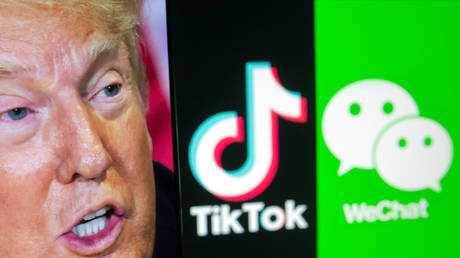
Beijing has accused the White House of abusing its “national power” by trying to squeeze TikTok, and demanded that the US provide a non-discriminatory business environment for foreign companies working in the country.
Speaking at a news briefing in Beijing on Monday, Chinese Foreign Ministry spokesman Wang Wenbin described a ban on downloads of the popular video app ordered by the Trump administration as “bullying behavior,” and said it was evidence of “abusing national power to unreasonably suppress other countries’ enterprises.”
Wang urged the US to “provide a fair, just, open and non-discriminatory business environment for companies around the world investing and operating in the country.”
A US government order sought to ban new downloads of the Chinese-owned app in the US from midnight (0400 GMT Monday). It would allow the use of TikTok until November 12, when all usage would then be blocked.
However, a US federal court late on Sunday issued a temporary block on the order. The ruling came after TikTok’s lawyers argued it was a “punitive” ban motivated by politics rather than genuine security fears. US District Judge Carl Nichols in Washington issued the preliminary injunction, declining “at this time” to block restrictions set to take effect on November 12.
TikTok’s parent company ByteDance has already started discussing the transfer of the app’s ownership to a tech giant Oracle. A new company, TikTok Global, would oversee US operations. President Donald Trump has approved the deal, which, according to him, will provide “‘100 percent” security.
“I have given the deal my blessing,” he said on September 19. “If they get it done, that’s great. If they don’t, that’s okay too.”
Trump has claimed TikTok poses a national security threat and gathers data for Beijing via ByteDance. The firm denied these allegations.
Chinese state-owned media, however, have sounded more sarcastic than optimistic while commenting on the US plan. In an editorial last week, the China Daily described the White House action against ByteDance as “banditry,” saying that “Beijing is unlikely to condone the White House’s strong-arm acquisition.”
If you like this story, share it with a friend!




